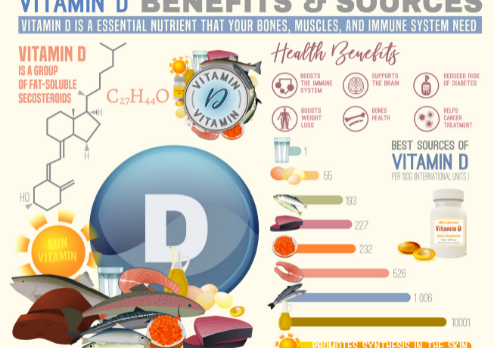
Vitamin D supplements are readily available and one of the least expensive supplements on the market. All things considered, vitamin D optimization is likely the easiest and most beneficial strategy that anyone can do to minimize their risk of COVID-19 and other infections, and can strengthen your immune system in a matter of a few weeks.
There is also a growing body of evidence showing vitamin D plays a crucial role in disease prevention and maintaining optimal health in general. Vitamin D affects nearly 3,000 of your 30,000 genes, which helps explain its influence. You also have vitamin D receptors located throughout your body.
According to one large-scale study, having optimal vitamin D levels can slash your risk of at least 16 different types of cancer, including pancreatic, lung, ovarian, prostate, and skin cancers. Vitamin D from sun exposure also radically decreases your risk of autoimmune diseases such as multiple sclerosis (MS) and Type 1 diabetes and helps prevent osteoporosis, which is a significant concern for women in particular.
Obtaining vitamin D through sun exposure is preferable over supplementation, as your skin is designed to produce vitamin D in response to the sun. Unfortunately, many are unable to get enough sun exposure due to their geography or work restrictions, and if this is the case, taking a vitamin D3 supplement is strongly recommended.
Vitamin D optimization is particularly important for dark-skinned individuals, as the darker your skin, the more sun exposure you need to raise your vitamin D level and as a result the higher your likelihood of vitamin D deficiency. Increased skin pigmentation reduces the efficacy of UVB exposure because melanin functions as a natural sun block.
If you are very dark-skinned, you may need to spend about 1.5 hours a day in the sun to have any noticeable effect. For many working adults and school-aged children, this simply is not feasible. Light-skinned individuals, on the other hand, may need only 15 minutes of full sun exposure a day, which is far easier to achieve.
Still, they too will typically struggle to maintain ideal levels during the winter. During winter months at latitudes above 40 degrees north, little or no UVB radiation reaches the surface of the earth. That said, residence at low latitude does not guarantee adequate vitamin D levels, either, since social and cultural norms may limit your sun exposure.
A healthy blood level of vitamin D is considered to be at least 40 ng/mL, with the recommended level being in the range of 40 to 60 ng/mL.
The evidence for vitamin D in particular is so compelling that more than 100 doctors, scientists, and leading authorities have signed an open letter calling for increased use of vitamin D in the fight against COVID-19.
Research shows low vitamin D levels almost certainly promote COVID-19 infections, hospitalizations, and deaths. Simply optimizing your vitamin D can go a long way toward strengthening your immune system and ward off infectious disease, including COVID-19.
Vitamin D modulates thousands of genes and many aspects of immune system function, both innate and adaptive. Given its safety, it is strongly suggested for immediate widespread increased vitamin D intakes.